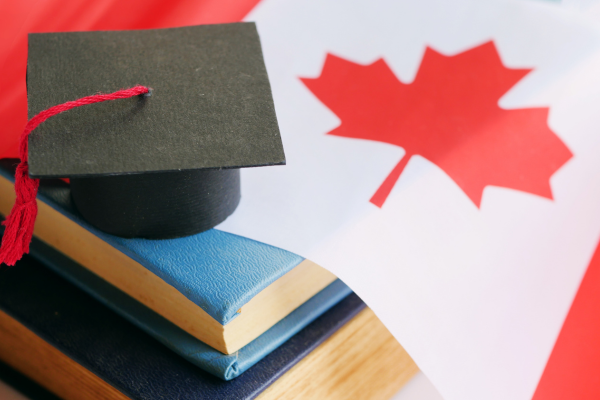What is Credential Recognition? How to get your skills assessed for work in Canada

Advertisement: Click here to learn how to Generate Art From Text

Credential recognition of your education and experience can help you in your job search. What is it, and why is this important? Credential recognition gives employers, industry professionals and regulatory bodies an objective measure of your knowledge and skills. You can show your expertise and competency using a standard measure. Discover how recognition in Canada can open up career opportunities.


Why is Credential Recognition important?
Credential recognition allows employers to understand the value of international experience. Canadian employers may not recognise your education and experience if you do not complete the process. You may be faced with a long job search, which can cause financial hardship.
Certain professions and occupations are regulated Canadian trades jobsTo work, electricians need a permit. The governing bodies for regulated professions will confirm if you meet Canadian standards.
You may be able start the credential recognition before you arrive in Canada. You can reduce the time spent on the process upon arrival by starting the process before you arrive. Your career advancement faster.
Credential recognition could reveal that you require further education to obtain a Canadian license to work as a professional in your field. These steps will be cheaper if you do them while you are abroad.
What is Credential Recognition?
Credential recognition validates the qualifications, skills and expertise you have gained from education, training or professional experience. You may be approved to migrate to Canada, but you must ensure that Canadian employers value and recognize your:
- Professional credentials


What’s Involved with Recognition?
Credential recognition is a two-step process: evaluation of education and recognition of credentials.
I. Education Credential Assessment (ECA).
An ECA reviews your academic background. This allows employers to see how your education compares with the Canadian educational system and its value.
Your international education will be reviewed by an approved credential agency to confirm the following:
1. Where you went to school:
- Did you read what you say?
- Did you complete your education?
2. If the institution exists:
- Is your school recognized and accredited by a regulatory body for education?
3. Your Education Level
- How many years of schooling do you have?
- How does your education compare with similar studies in Canada


Employers might want an evaluation by a specific organization like World Education Services(WES) or another Designated Educational Credential Assessment Agency. When applying for a job, they may ask you to submit a formal education evaluation.


II. Credential Recognition for Regulated Professionals
Around 20% of Canadian jobs are in regulated professions. Credential Recognition verifies that you have met Canadian standards in terms of education, training, work experience, and skills.
The occupational regulatory boards of the provinces and territories (P/Ts) set the standards for obtaining an occupational license in certain professions, such as:
You can use the Check to see if your profession is required to have a work permit in Canada. National Occupational Classification (NOC 2021 Version 1.0). Here are the NOC codes of some in-demand occupations in Canada.


Working in Non Regulated Fields
About 80% jobs in Canada do not require a licence or certificate.
If you do not require a license, it’s up to the employer to decide if you can perform the job based on your:
Some fields, such as marketing, are not regulated. Canadian employers do expect a business certificate or degree, as well as relevant experience. Even though the employer might not ask for a formal education evaluation, it is still helpful when you are applying for a job in a competitive marketplace.


Credential Recognition: Benefits
Gain a Competitive Advantage:
With credential recognition, you gain a competitive edge in Canada’s job market because it signals you have the expertise to excel in the role. You’ll be attractive to employers because:
- Commitment to professional growth
- Mastery of relevant Skills
- Alignment with industry standards
Build Credibility and trust:
You can be confident that your credentials will be recognized by industry professionals, regulatory bodies and other stakeholders. You instill confidence in colleagues, clients, and employers.
Advance Your Career
The right credentials can help you progress in your career. Check out Career PathwaysLearn about the regulatory bodies that govern your profession.
Improve your earning potential
Credential recognition is a great way to help you. Negotiate a better salaryYou will receive a higher compensation package for your expertise.
How to Navigate Credential Recognition Process
It can be difficult to navigate the process, but these steps will help you.
1. Research Requirements
Find out what credentials you need to be able to work in Canada, your industry and your profession. communication skills. Learn what documents are required, how to evaluate them, and the fees.
2. Gather Documents
Collect all relevant documents, such as academic transcripts, certificates or portfolios. Gathering documents prior to arrival in Canada It will be more cost-effective and easier to do.
3. Connect with Credential Organizations
To understand the timeline and process, seek guidance and support from relevant credentialing organizations, professional associations or regulatory bodies.
4. Prepare for the Assessment
Learn about assessment methods like exams, interviews, and supervised tasks. Communication skills evaluationContinue your studies.
5. Be patient and persistent
The credentialing process can be complicated and involve many steps. Be patient, and be sure to respond to any feedback or requests from the credentialing body.
Related Posts


What Credential Recognition Means to You
If you take the right steps, your foreign credentials can be recognized and open up new career opportunities in Canada. Although the process is time-consuming, it can be started in your home country. Gather all supporting documents before you leave for Canada. This will save you time and money. You can get a job quicker if you start the process before your arrival.
You can find out what you need by doing some researchYour success in Canada depends on your ability to succeed.
If you plan on working in a regulated career in Canada, be sure to check out Career PathwaysLearn about the regulatory bodies that govern your profession.
Career success in Canada can be built on your ability to demonstrate your professional credentials.


FREQUENTLY ASKED QUESTIONS
Common credentials include
Academic degrees: Bachelor’s, master’s, and doctoral degrees from accredited educational institutions attest to specialized knowledge.
Professional certifications Certifications in a particular industry are a way to validate your knowledge and skills.
Vocational and technical qualificationsDiplomas, licenses, or certificates show specialized skills.
Continued education and professional development Ongoing training and learning shows commitment to growth and lifelong learning.
Language proficiency: Proficiency in multiple languages is valuable in today’s global economy.
3. Can I get my credentials assessed online? sWhat is the current status of India?
Contact the regulatory authority for your profession in province where you intend to settle and see what steps can be taken before you arrive. Obtaining a certificate or licence to practice in “regulated”The occupations vary by province and job.
You can also check with the professional or trade associations that govern your occupation in your home country to see if they work with similar associations in Canada.
Yes, you can. You can check with the professional or trade associations that govern your occupation in your country of origin to see if they are affiliated with similar associations here in Canada. You can use the Canada Job BankLearn about licensing and certification.
It can take several months or even years to complete additional training, pass exams and obtain a license to work in Canada. So, it’s vital to know what you require and prepare.

‘ Credit:
Original content by www.prepareforcanada.com – “What is Credential Recognition? Get Your Skills Assessed for Work in Canada
Read the complete article at https://www.prepareforcanada.com/working-in-canada/getting-your-skills-assessed-to-work-in-canada/what-is-credential-recognition/






